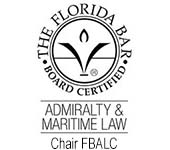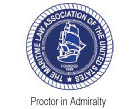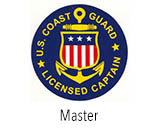What to do in the event of an injury aboard a cruise ship?
1. File an incident report. If you have been injured on a cruise ship, it is imperative that the injured passenger, guest, or crew member immediately report the incident to cruise ship personnel providing them with the specific incident details, including details of how and what caused the injury. Reporting your incident to cruise ship authorities may trigger an investigation by the cruise ship personnel. To ensure your cruise ship injury claim is properly reported and investigated, we recommend that you report it to someone who works for the cruise line with authority to investigate the matter, such as the ship’s safety or security officer. Be honest and provide clear information about howthe incident occurred, the cause of your injuries, and what the cruise ship failed to do that contributed to your injury. Provide as many details about the incident as you can, but do not accept blame for the incident. If possible, obtain copies or photos of any reports and forms you are asked to sign and fill out.
2. Seek Medical Treatment. You should seek appropriate medical care and treatment with a licensed professional to evaluate your injuries. For passengers or crew members who sustain injuries while still on board the cruise ship and in navigable waters, this typically involves seeking medical treatment at the ship’s medical center. The ship’s medical center may threaten to charge you in order to discourage you from seeking medical help, but do not be intimidated by the fees. If the cruise line’s negligence caused or contributed to your injuries, this expense is likely to be reimbursed in the future. You need to tell the physician how the incident happened, specify where the incident occurred, and describe in detail every area of the body that was injured. Following medical treatment, request copies of your medical records, forms, and other documents that you signed from the cruise ship’s medical staff.
3. Gather evidence. Take photos and videos of the area where your incident happened, including the conditions that existed at the time of the incident such as the floor surface, lighting conditions, weather conditions, traffic, caution signs, wet floor signs, and any other factors that may be relevant to your injury. Additionally, take photos of any injuries you sustained as a result of the incident. Take note of any CCTV or surveillance cameras in the area that might have captured your incident. Furthermore, gather the names and contact information of any witnesses (whether it is other passengers or crew members) to the incident and any relevant comments that they may have made relating to the incident.
4. Seek legal counsel. Once you have gathered all of the necessary information, due to the complex nature of the law surrounding injuries aboard cruise ships, it is imperative that you contact an attorney that is experienced in the field of Admiralty and Maritime Law and specifically, in dealing with the different factors involved in handling claims under federal maritime law to help you navigate through the legal process.
What to do in the event of a sexual assault?
If you are the victim of a sexual assault, as part of The Cruise Vessel Security and Safety Act (CVSSA) of 2010.
You have the right to receive a security guide, a written summary which describes where to go and who to talk with if a crime occurs. The security guide must also include criminal law procedures for crimes committed in any waters the vessel might travel through during the voyage, as well as a list of U.S. embassy and consulate locations in foreign countries the cruise ship will be visiting.
You have the right to have a sexual assault forensic exam on board. Cruise ships must have the equipment and materials for performing this medical exam, should a sexual assault occur.
You have the right to confidentiality when you request and receive support services.
Any information you provide to medical staff, counselors, and other support staff while receiving services after a sexual assault must remain confidential; this includes information disclosed during a sexual assault forensic exam and any other support services available.
Note: If the victim or perpetrator of a sexual assault is an American national, and their ship sails from or to a U.S. port, then the FBI will have jurisdiction over the case. In other circumstances, it’s more complicated to determine which agency —or even which country— has jurisdiction. The principal law under which the U.S. exercises its Special Maritime and Territorial Jurisdiction is set forth in Section 7 of Title 18 of the U.S. Code. This statute provides, in relevant part, that the U.S. has jurisdiction over crimes committed on a ship if:
The ship, regardless of flag, is a U.S.-owned vessel, either whole or in part, regardless of the nationality of the victim or the perpetrator, when such vessel is within the admiralty and maritime jurisdiction of the United States and out of the jurisdiction of any particular state;
The offense by or against a U.S. national was committed outside the jurisdiction of any nation;
The crime occurred in the U.S. territorial sea (within 12 miles of the coast), regardless of the nationality of the vessel, the victim or the perpetrator; or
The victim or perpetrator is a U.S. national on any vessel during a voyage that departed from or will arrive in a U.S. port.




